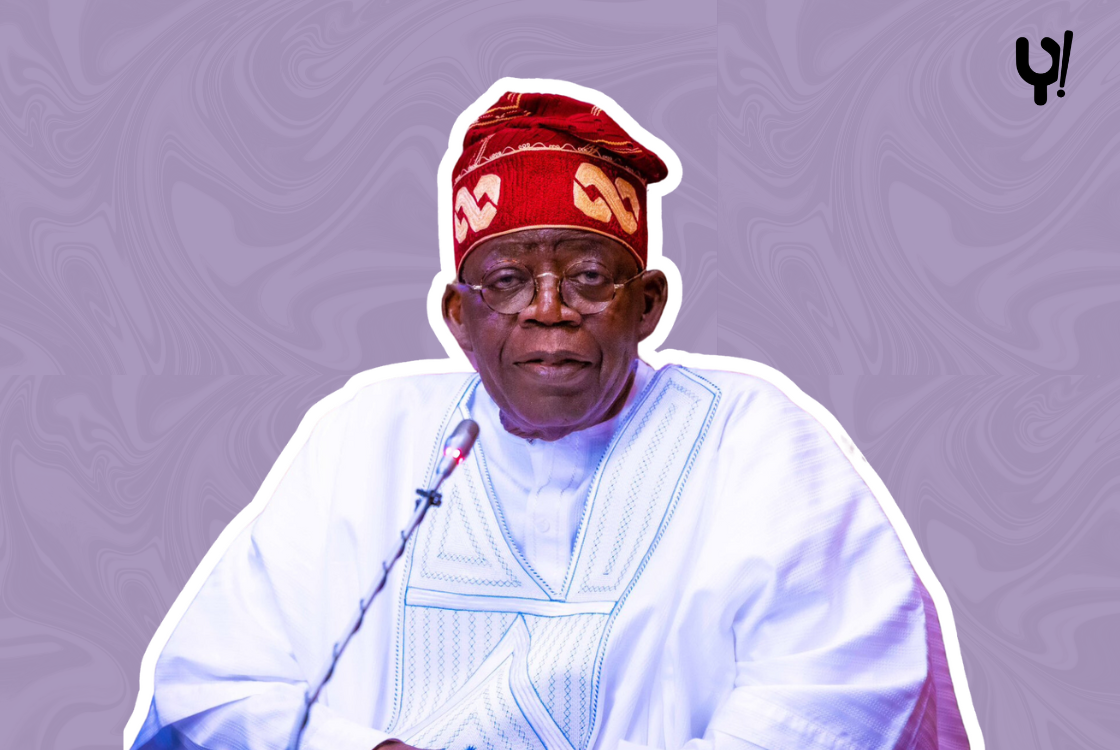- After May 29, Niger Republic will defend me – Buhari
- Seun Kuti Released After 8 Days in Police Detention
- Tribunal: Hearing to Commence May 30, Merging PDP, LP, APM Petitions
- Lawan Denies Seeking Reelection as Senate President
- UK Bars Nigerian Students and Others from Bringing Family by January
Across Nigeria’s 36 states and the Federal Capital Territory, these are the five top Nigerian news stories you shouldn’t miss
After May 29, Niger Republic will defend me – Buhari
President Muhammadu Buhari expressed his belief yesterday that the people of Niger Republic would support him if anyone posed a threat to him after his tenure. He also revealed that he intentionally shut down the nation’s land borders to encourage Nigerians to prioritize locally-made products.
However, Buhari’s statements drew criticism from the Pan-Yoruba socio-political organization, Afenifere, and the Middle Belt Forum (MBF), who perceived his stance as lacking commitment to Nigeria. They further asserted that Nigerians would not feel his absence once he left office.
Addressing these concerns extemporaneously at the inauguration of the new corporate headquarters of the Nigeria Customs Service in Abuja, Buhari reiterated his decision to distance himself from the capital city at the end of his presidency. He emphasized the importance of fostering positive relationships with neighboring countries for personal and national reasons, emphasizing the need for their cooperation and support.
With only six days remaining in his term, Buhari shared his intentions to be physically distant from Abuja, expressing gratitude for coming from a region far removed from the capital. He affirmed that his neighbors, particularly the people of Niger, would come to his defense if necessary.
Buhari defended his decision to close the country’s land borders, emphasizing its aim of promoting local food production for self-sufficiency. While the move initially faced criticism, he claimed that Nigerians eventually recognized and appreciated its benefits.
Seun Kuti Released After 8 Days in Police Detention

Afrobeat singer Seun Kuti has been released from police detention after spending eight days in custody. On Tuesday evening, Seun was reunited with his family upon meeting the conditions for his bail.
His lawyer, Adeyinka Olumide-Fusika, confirmed the release, stating that Seun will appear at the magistrate’s court in Yaba on Wednesday for the adjourned proceedings. The purpose of this hearing is to receive advice from the director of public prosecution (DPP).
Seun Kuti, the youngest son of the late Afrobeat legend Fela Kuti, was arrested on April 15 following a filmed altercation with a police officer on the Third Mainland Bridge. He was subsequently held at the state criminal investigation Department (SCID) and presented before the magistrate’s court on April 16.
The police sought an order to extend his custody by 21 days pending the conclusion of their investigation.
However, Chief Magistrate Adeola Olatubosun instructed the police to detain Seun for an additional 48 hours before granting him bail. On Thursday, Olatubosun extended his remand by another four days to allow for further investigation. She also ordered the duplication of Seun’s file to be sent to the DPP and adjourned the trial until May 22. Subsequently, the trial was rescheduled for Tuesday, May 23.
Unfortunately, the trial was delayed due to the absence of the chief magistrate.
Earlier in the day, protesters gathered outside the court displaying banners with slogans such as “Free Seun Kuti” and “End Police Brutality,” among others.
Tribunal: Hearing to Commence May 30, Merging PDP, LP, APM Petitions

The Presidential Election Petition Court has consolidated the petitions filed by the Peoples Democratic Party (PDP), Labour Party (LP), and the Allied Peoples’ Movement (APM), along with their respective presidential candidates. This announcement was made by the Chairman of the Tribunal, Justice Haruna Tsamani, during the presentation of the court’s pre-hearing report on Tuesday.
All three parties are challenging the outcome of the February 25 presidential election, in which Bola Tinubu of the All Progressives Congress (APC) was declared the winner by the Independent National Electoral Commission. Tinubu received 8,794,726 votes, while PDP’s Atiku Abubakar garnered 6,984,520 votes, and Peter Obi of the Labour Party (LP) obtained 6,101,533 votes.
During Tuesday’s proceedings at the Court of Appeal in Abuja, the Tribunal stated that the Labour Party and its presidential candidate, Peter Obi, have a three-week period to present their case. To expedite the hearing of the Labour Party’s petition, oral examination of witnesses will not be conducted; instead, witness statements will be adopted. Expert witnesses will have 30 minutes for evidence-in-chief, 20 minutes for cross-examination, and 5 minutes for re-examination.
The hearing for Peter Obi’s case is scheduled to commence on May 30 and conclude on June 23. Justice Misitura Bolaji-Yusuf, while presenting the hearing report, mentioned that the APM will have one day to present its case since they only have one witness to call. Following Section 41(3) of the 1st Schedule of the Electoral Act, the court specified that witnesses will not be orally examined and will only be allowed to adopt their written statements. The APM’s hearing will take place from May 30 to July 3, with the deadline for closing their evidence set for June 6.
Regarding the PDP’s petition, Atiku Abubakar has a three-week period to prove his case, with the hearing commencing on May 30 and ending on June 20. The First Respondent, the Independent National Electoral Commission (INEC), has been allotted two days, while the 2nd and 3rd respondents, Bola Tinubu and the APC, have been granted five days.
The consolidated suit is scheduled to begin on May 30, with hearings taking place throughout the week, including Saturdays. The Labour Party and the PDP will conclude their cases on June 23.
Lawan Denies Seeking Reelection as Senate President

Ahead of the inauguration of the 10th National Assembly, Senate President Ahmad Lawan has refuted claims that he is vying for reelection as Senate president. Lawan, who previously served as the Majority Leader, was elected as the Senate President in 2019 with the support of the ruling All Progressives Congress (APC).
The APC has endorsed Godswill Akpabio, a former governor of Akwa Ibom State, as its candidate for the position of Senate President, and Barau Jibrin, the senator representing Kano North District, as the Deputy Senate President.
In a statement released on Tuesday, Lawan clarified that he had not declared his intention to contest for the next Senate presidency seat, nor had he held any meetings discussing his candidacy. He emphasized his commitment to the party’s position, as he is a part of the APC leadership.
Lawan addressed the media reports, stating, “I have read some media reports that I have joined the race for the Presidency of the 10th Senate. Ordinarily, I would not have responded to these reports but when lies are not refuted, they have the tendency to create an illusion of truth.”
He urged the public to disregard the reports, emphasizing that he remains focused on the leadership of the APC and finding solutions to the challenges facing the 10th National Assembly.
With this statement, Lawan clarified his position and affirmed his dedication to the party’s objectives without seeking reelection as Senate president.
UK Bars Nigerian Students and Others from Bringing Family by January

The United Kingdom has announced plans to impose restrictions on foreign students bringing family members with them starting from 2024. This move comes as part of the UK’s efforts to curb net migration, as reported previously.
In a statement released by the Home Office on Tuesday, it was emphasized that this measure is necessary to prevent individuals from using the student visa as a means to work in the UK through the backdoor. The Home Office highlighted that in 2022 alone, nearly half a million student visas were issued, and the number of dependents of overseas students has seen a staggering 750% increase since 2019, reaching 136,000 individuals.
The reforms will be implemented for students commencing their studies in January next year. However, the government has expressed its intention to collaborate with the higher education sector to explore alternative options that would enable exceptional and talented students to still bring their dependents when studying at the UK’s renowned universities.
As part of these changes, overseas students will be prohibited from switching from a student visa to a work visa until they have completed their studies. Additionally, the UK government will review the financial requirements for students to demonstrate their ability to support themselves and their dependents during their stay.
The Home Office has also emphasized its commitment to cracking down on unscrupulous international student agents who may be involved in supporting inappropriate visa applications.
Suella Braverman, the Secretary of State for the Home Department, justified the move as necessary to safeguard the UK economy. Braverman acknowledged the UK’s appeal as a preferred destination for bright students, but stressed the need to address the significant increase in the number of student dependents entering the country with visas. She expressed that tightening this route would enable the government to reduce net migration and fulfill its pledge to protect public services while supporting the economy by attracting the most valuable student contributions.
It should be noted that the restrictions will apply to master’s students and certain other postgraduate students, excluding PhD students who are highly skilled and undertake longer-duration courses lasting between three to five years.
If implemented, this crackdown will have an impact on many Nigerian students aspiring to pursue postgraduate studies in the UK, as they accounted for the highest increase in the number of dependents accompanying individuals with study visas in 2022. Furthermore, Nigerian nationals also saw the largest rise in sponsored study grants compared to 2019, reaching a record high of 65,929, marking a 686% increase.














